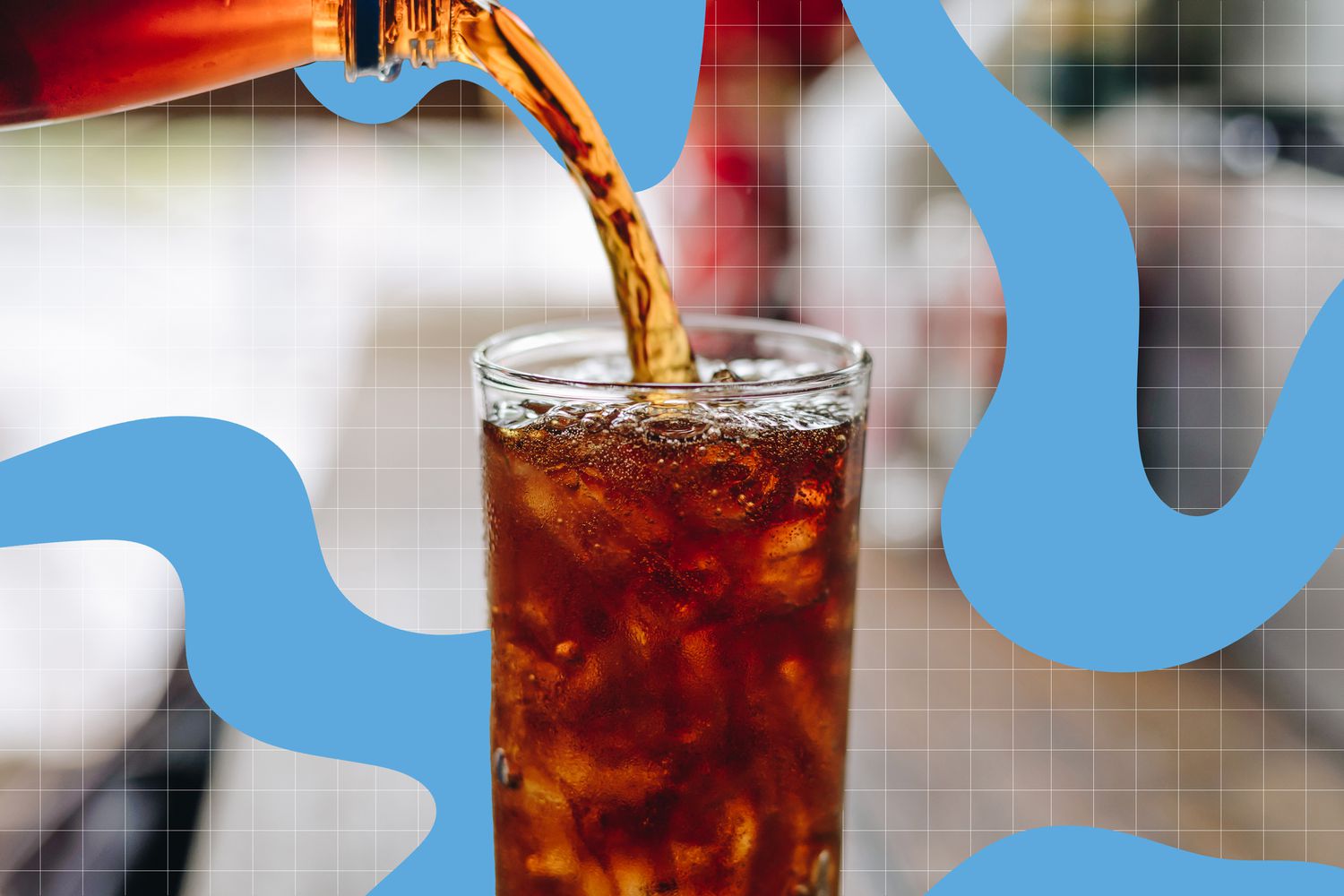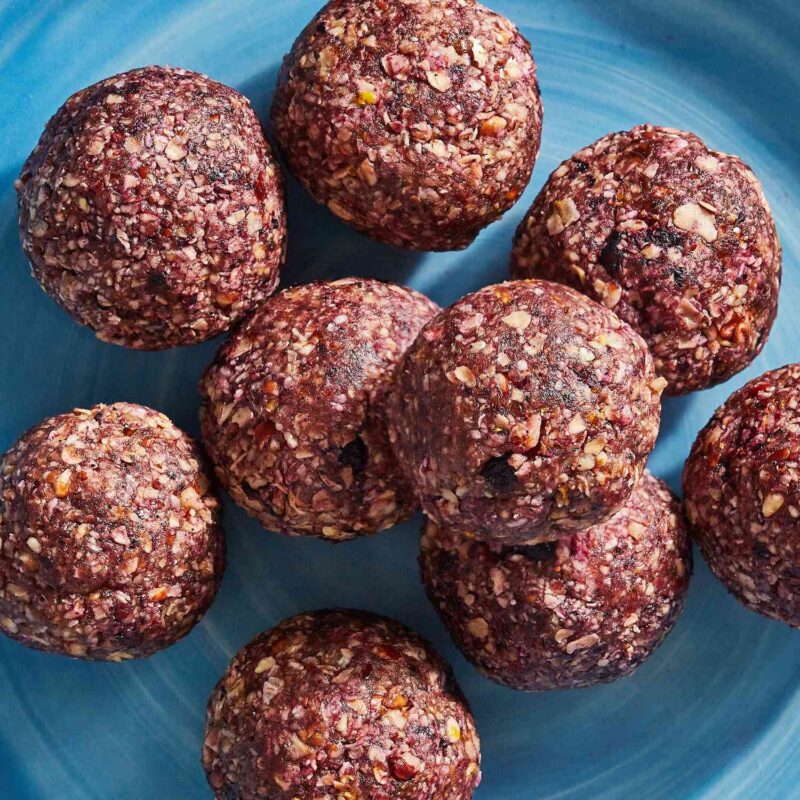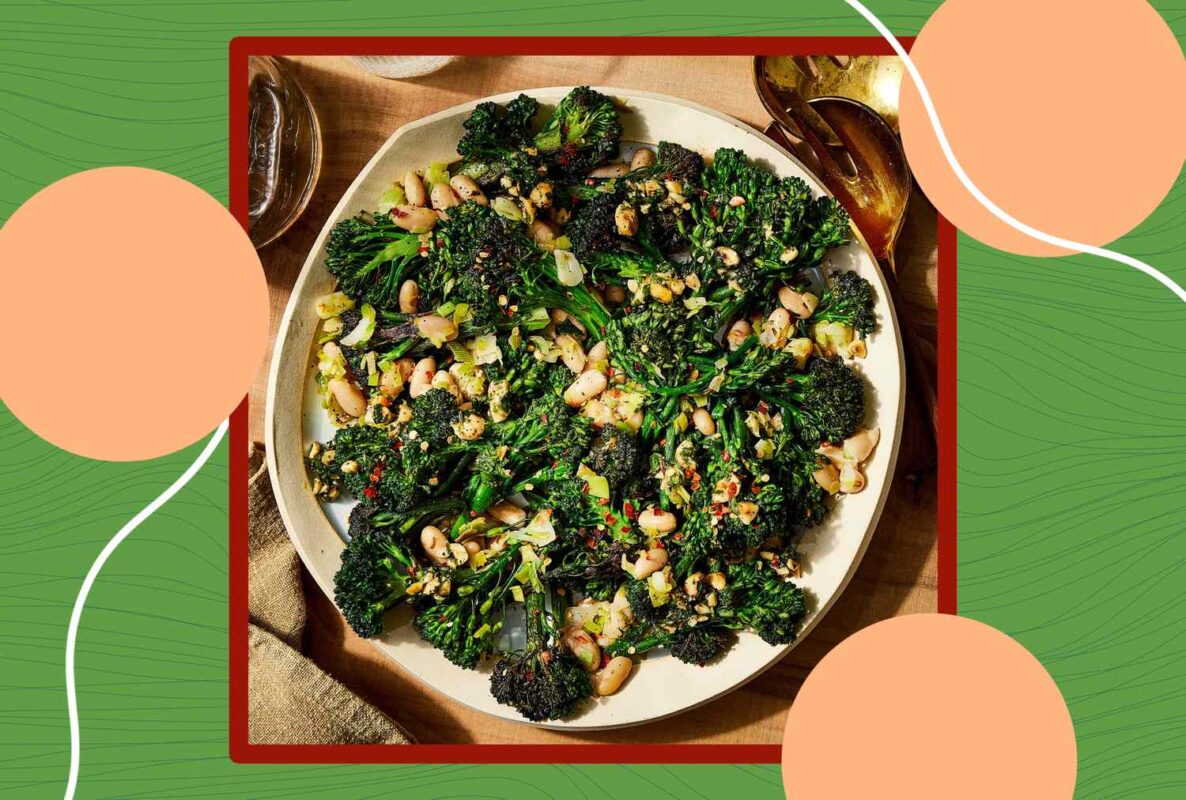Blog
Why Diet Soda May Be Better Than Regular Soda

- Dietitians agree that diet soda, often painted as a “bad” drink, can be a part of a healthy diet.
- Low- and no-calorie sweeteners have proven to be safe when consumed in moderation.
- Diet soda has no calories or added sugar, making it a better option for your health goals over regular soda.
According to the Dietary Guidelines for Americans, the beverages we consume should support the development of healthy habits. Per the guidelines, this means prioritizing water first and foremost, then low-fat or fat-free milk or dairy alternatives for their nutrient additions. Plus, 100% fruit juice, unsweetened tea and coffee can also fit in moderation.
But we’re human, too. And, sometimes we want a drink that doesn’t fall within these recommendations. Case in point? Carbonated beverages, like soda. For decades, diet soda was considered nutritionally superior because of its low/no sugar offerings. But it’s been receiving backlash as of late, allowing regular soda to step into the limelight as a “healthier” option.
But we’re here to spill the tea: Diet soda might not be as bad as you think! In fact, nutrition experts say that, for some people, it could be the better choice. Here are the facts so you can make the best choice for you and your health goals—even if that means a diet soda now and then.
Why Diet Soda May Be “Healthier” Than Regular
It Contains No Added Sugars
Overdoing it on added sugar is associated with poor health outcomes, including a higher risk of obesity, type 2 diabetes and heart disease. Unfortunately, Americans are already consuming far too much in their diet, with sugar-sweetened beverages as the top source. In fact, about half of adults drink a sugary beverage daily, with a 12-ounce can of soda contributing 37 grams of added sugars to the diet., On the other hand, a can of diet soda contributes 0 grams.
The easiest way to limit added sugars? Nix beverages high in added sugars, like regular soda. Jaclyn London, M.S., RD, CDN, shares, “The best way to cut back on added sugar is to be picky about where it comes from in your diet. Added sugars were meant to be consumed as dessert, not a beverage you’re enjoying with lunch. That’s why I recommend diet soda over the sugary alternative—the original is giving you calories without the satisfaction of feeling full, and is delivering added sugar in an easy-to-consume (liquid) form that contributes to our overconsumption of this nutrient on the whole.”
It Helps Reduce Total Calorie Consumption
Consuming more calories than needed is a prime contributor to obesity and other conditions that come with excess body weight. A can of soda provides 155 calories but no other nutritive value, making it easy to rack up additional calories. A diet soda? Zero calories.
Dustin Moore, Ph.D., RDN, shares, “Diet soda is a way to enjoy a flavorful beverage that does not make any caloric contributions. This is a big deal for anyone trying to actively lose [weight] or maintain weight loss. Diet beverages remind us that not all lifestyle changes require removal of things that we enjoy.”
It May Reduce Tooth Decay
Regular soda drinkers are more prone to cavities, but a study found the opposite to be true with those who opt for diet soda. In the study, researchers found that consuming nonnutritive sweeteners can reduce tooth decay and cavities. While more research is encouraged, diet sodas may be a better option to keep your oral hygiene in check.
It’s Satisfying (for Many)
London, Moore and fellow registered dietitian Zach Coen, RDN, all share their appreciation for a diet soda or other sodas made with low- and no-calorie sweeteners (LNCSs) on occasion too. Coen shares, “The most recent ‘zero’ versions of soda have done a great job of mimicking the taste of regular soda, inviting us to enjoy that same tasty flavor, without the added calories and sugar.”
Are Low- and No-Calorie Sweeteners Safe?
Yes, in moderation. According to Coen, “There is a lot of confusion and misinformation surrounding sweeteners used in diet sodas. But, when we look at the actual evidence, it shows these sweeteners are not inherently harmful or bad, and can be enjoyed in moderation as part of a balanced diet.”
A review of the current literature regarding safety and perception of LNCS established the long history of safe use of LNCSs and regulation by global agencies, including the Food and Drug Administration and European Association for the Study of Diabetes. These agencies agree that consumption of foods with these sweeteners is safe as part of a balanced diet, and the latter agency deems them safe even for people who have diabetes .
Each LNCS has an Acceptable Daily Intake (ADI), which is a measure of safety that designates the acceptable amount consumers can consume daily throughout a lifetime with no adverse effects. Even with the ongoing product innovation that may have consumers enjoying LNCSs more than before, we’re still nowhere close to consuming levels that would pose a concern.
So, why does confusion still exist? Miscommunication is rampant and, as a result, consumers are left piecing together what they believe to be true based on media headlines and hype, not science. The review’s author, Kris Sollid, RD, writes, “Standards for media headlines are not the same as standards of care for health professionals. The highest standards of care rely on the highest levels of scientific evidence.”
Does This Mean Regular Soda Is Off-Limits?
There are no foods that should be written out of your diet (if you enjoy them) unless they aren’t safe to eat from a food safety or food allergy perspective. With this in mind, if you prefer a regular soda, you can fit it into your diet, on occasion and keeping portion size in mind.
Coen shares, “While I wouldn’t really recommend drinking regular soda on a daily basis, in some cases, having one could be beneficial. Because regular soda is a fairly calorie-dense beverage with fast-digesting carbohydrates, it could be useful in situations where somebody may need a quick boost of energy (like an athlete before or after a strenuous workout or somebody experiencing low blood sugar).”
What to Look For in Better-for-You Drinks
Looking for a beverage and not a fan of diet soda? Consider these quick tips to find a better-for-you drink that will help you meet your health goals.
- Low to no added sugars. A smoothie made from frozen fruit with some Greek yogurt for added protein checks this box.
- Abundant nutrients, like calcium and vitamin D. A classic glass of milk or fortified soy milk is perfect.
- Source of prebiotics or probiotics. Kefir is a great choice here, as are low-sugar kombuchas.
- Antioxidants. Hello, 100% fruit juice—a source of natural, good-for-you plant compounds.
Our Expert Take
Nutrition experts agree that if you enjoy diet or no-calorie sodas, they certainly can fit into your meal plan. Low- and no-calorie sweeteners have proven to be safe when consumed in moderation, such as drinking a diet soda every now and then. Plus, because they’re free of calories and contain no added sugars, they may be a better option for your health goals over a regular soda.
While dietitians don’t encourage you to start drinking diet soda (or regular soda) if you’re not already, they want to assure you that if you do enjoy it, there’s no need to avoid it. Coen shares, “The truth is, there are no inherently ‘bad’ foods. Foods should not have moral value assigned to them, but over the years, soda in general has been heavily demonized. We should all strive to eat a well-balanced diet, consisting of mostly whole foods, but also don’t be afraid to enjoy those ‘fun’ foods, like a zero-calorie soda, in moderation.”
Read Next: This ‘Bad’ Snack Is ‘Healthier’ Than The Regular Version












